Contents
The southern regions of Our Country, including the Rostov region, were the main suppliers of vegetables back in Soviet times. After the collapse of the Union and the ensuing general devastation in the Rostov region, state farms engaged in the production of vegetables in the open field disappeared, and seed production completely died out.
The population of the region has always been inclined towards small-scale production of vegetables, therefore, in the absence of their own varieties, they tried to get by with foreign hybrids, the undoubted advantage of which was the ability to withstand long-distance transportation. But the quality of these hybrids was “Turkish”, that is, they were hard and completely tasteless vegetables.
The situation changed after the opening in the Rostov region of a branch of the agricultural firm “Poisk” – the Selection and Seed Center “Rostovsky”. Thanks to this company and its branch in the Rostov region, not only the old varieties of vegetables have been revived, but new hybrids and varieties have been created and continue to be created that meet the needs of small farmers.
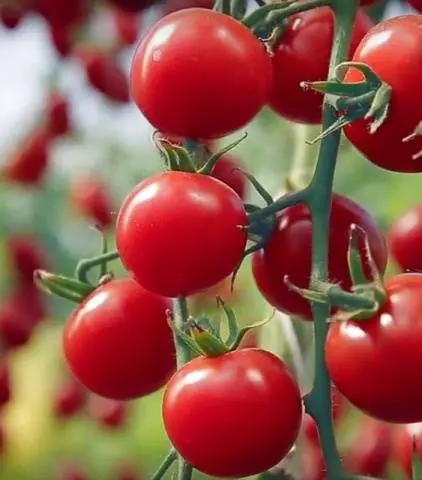
New varieties are required not only to be able to withstand long storage and transportation, but also to have excellent taste, heat resistance, disease resistance and the ability to grow in soil containing a significant amount of salt.
In the Rostov region there is no high-grade fresh water. Once this land was the bottom of the sea and all the water contains a significant amount of salts. Regardless of the phosphogypsum introduced into the soil, the variety intended for the Rostov region must be resistant to salinity. It is these varieties that come out of the Rostovsky SSC, since they initially receive brackish water when irrigated.
In addition, today farmers have changed the requirements for the timing of fruiting. If earlier early determinant varieties with a friendly yield of the crop were of interest, today tomatoes with a long fruiting period, that is, indeterminate ones, have become in demand. The company “Poisk” may well offer a choice of various domestic varieties that meet any requirements and is not going to stop there.
Vegetable growers in the southern regions of Our Country are trying to pick up varieties of tomatoes with different ripening periods in order to get fresh tomatoes throughout the warm season.
Varieties of tomatoes for garden plots in the Rostov region
“Voyage F1”
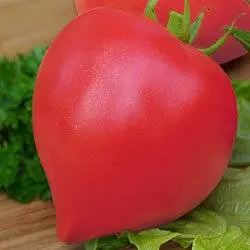
The hybrid is early ripe with unlimited stem growth and a vegetation period of 100 days. Grown in greenhouses and outdoors. Differs in resistance to diseases and high productivity.
Tomatoes are leveled, rounded, resembling a stylized heart, with a characteristic “nose”, for salad purposes. Weight up to 150 g. The taste is the usual “tomato”.
“Marshmallow in chocolate”
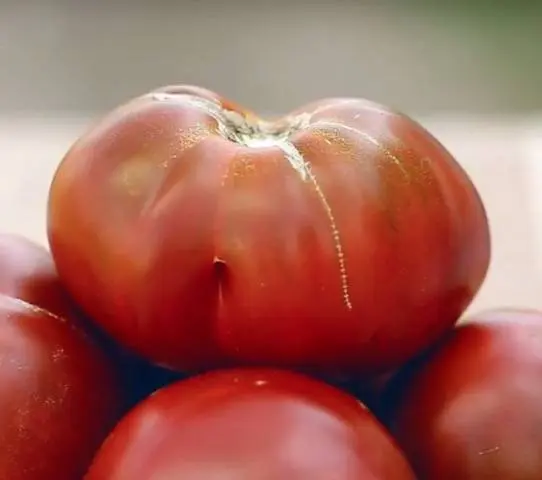
The variety is not a hybrid, that is, you can get your own seeds of this tomato on the site. Mid-season. 115 days pass before the harvest. An indeterminate variety with a bush height of up to 170 cm. Requires tying.
On average, tomatoes of this variety reach a weight of 150 g. The fruits have an unusual dark red-brown color and an excellent sweet taste. Salad variety.
Disease resistant. Unfortunately, the variety is distinguished by a very poor keeping quality; it is not intended for long-term storage.
“Banana yellow”
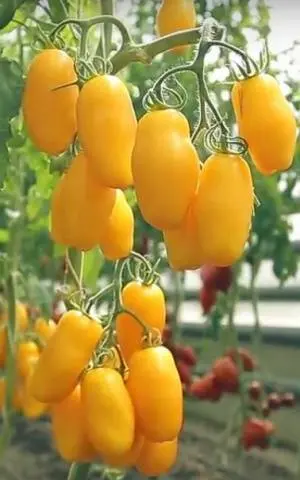
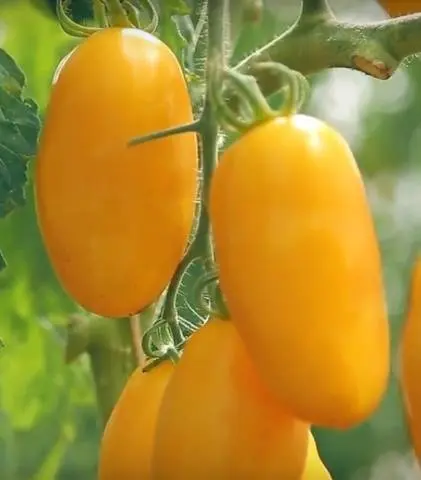
An indeterminate variety up to 3 m high. Medium-late, 125 days pass before harvest. The bush is well leafy, not standard. Leaves are medium in size. On simple brushes, up to 10 fruits are laid.
Tomatoes are yellow, up to 7 cm long. The shape is elongated with a characteristic “nose”, sometimes the tomatoes can be curved, resembling a banana, hence the name. The pulp is sweet, fleshy, dense. The weight of tomatoes is up to 120 g. The tomato belongs to salad, which does not interfere with its universal use. Suitable for whole-fruit preservation and juice production.
Advantages are the ability to stay on the stem after ripening, resistance to diseases. Can be grown outdoors and in greenhouses.
“Bison orange”
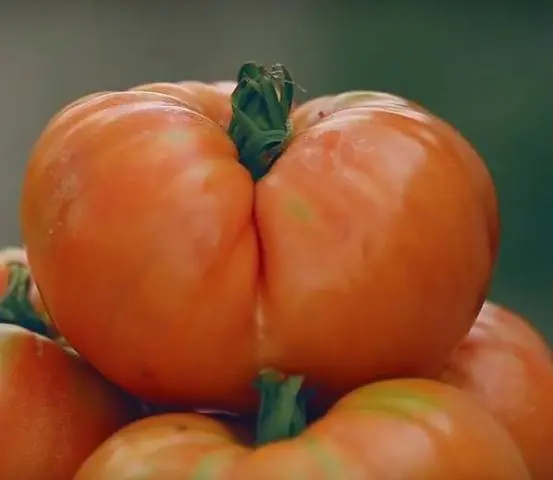
Large-fruited mid-late variety for greenhouses. A tall bush requires tying and shaping. Tomatoes are round, flattened at the “poles”, slightly ribbed. The weight of one fruit is up to 900 g. Ripe orange tomatoes. Salad variety. Can be used in cooking.
In the assortment of Poisk, in addition to the Orange Bison, there are also Yellow and Black Bison.
“Blush”
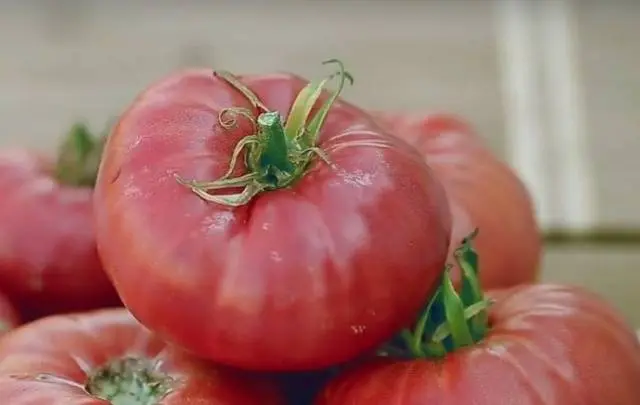
Greenhouse variety, mid-late. Due to the significant growth, the bush requires a garter. Pink fruits are quite large, up to 300 g, with sugary sweet pulp. Tomato belongs to the salad.
The best varieties of tomatoes in the Rostov region, suitable for professionals and amateurs
«Alaya Caravella F1»
A variety from among the novelties, but has already received the appreciation of vegetable growers. Indeterminate tall hybrid grown indoors. The term before harvest is 110 days. Due to growth and a large number of fruits, it requires tying.
Up to 11 ovaries are formed on the hands. Tomatoes are aligned, slightly elongated, even red in color when ripe. Weight 130 g, tomato pulp is dense, which is a hallmark of this company.
An undoubted advantage is the resistance to cracking and the ability not to crumble when ripe, which reduces crop losses. It tolerates sharp temperature fluctuations well. It is used fresh, recommended for whole-fruit canning.
“Krasnodon F1”
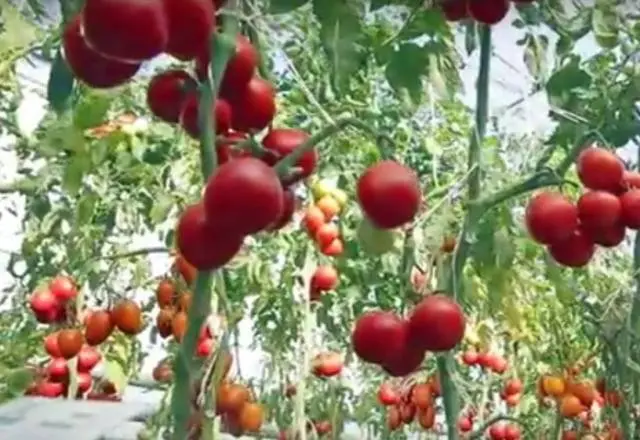
Mid-season, large-fruited lettuce hybrid. Harvest ripens in 115 days. The height of the bush is not more than 0,7 m, determinant. Can be grown outdoors and in greenhouses.
Tomatoes are round, slightly ribbed with uniform red dense pulp of excellent taste. Weight up to 300 g. Universal purpose, except for whole-fruit canning. Due to the size it will not fit into the bank.
Resistant to pathogenic microorganisms.
“Elf F1”
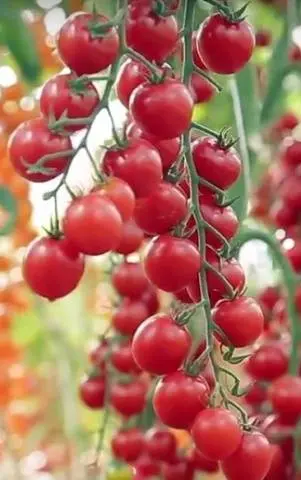
Tomato belongs to the “cherry” group, harvesting is done by whole brushes. The growing season is 95 days. Bush with unlimited stem growth. The variety can be grown both in greenhouses and outdoors. Tomatoes are dark red, spherical. Sometimes they can be slightly oval. Fruit weight up to 20 g. Tomatoes uniform in shape and size are collected in simple clusters of up to 16 tomatoes each. The pulp is dense, sweetish. The purpose of the variety is universal.
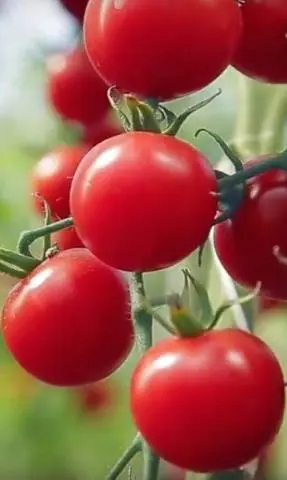
The advantages include resistance to pathogens, good fruit transportability, the possibility of cultivation at any time of the year, adaptability to hydroponic cultivation and the ability to produce crops when cultivated on the ground.
“Sweet Fountain F1”
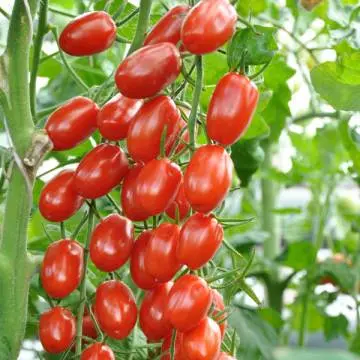
Designed mainly for industrial cultivation in greenhouses. Vegetation period is 100 days. Bush of indeterminate type. The tomato is very productive, producing many medium-sized (up to 20 g), very tasty tomatoes.
Ripe tomatoes of uniform red color. Near the stem there is a spot that completely disappears when ripe. Each bunch produces 15 to 30 oval tomatoes with a sweet dessert flavor.
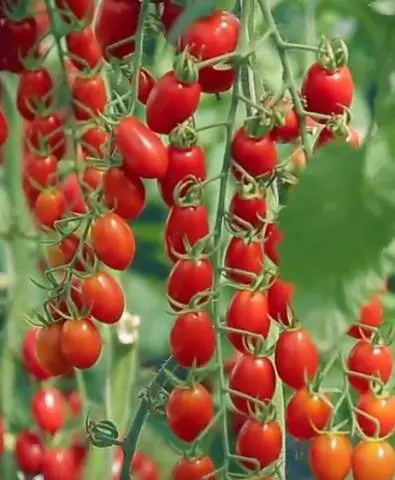
The variety is resistant to pathogenic microorganisms, shedding and cracking. Very good for whole-fruit preservation and fresh consumption.
“Golden Stream F1”
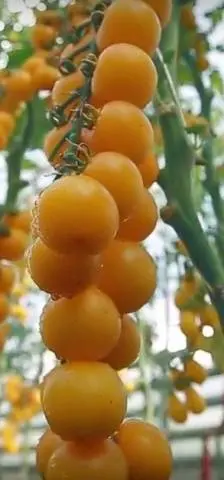
High-yielding mid-early hybrid with a vegetation period of 110 days.
The varieties are completely different, only the name unites them. A hybrid from Poisk is indeterminate with round fruits weighing up to 50 g. The bush needs a garter. Tomatoes are collected in brushes, each of which has an average of 11 fruits. Tomatoes are bright yellow, shiny, with dense pulp. The hybrid is harvested immediately with whole brushes. The hybrid is plastic, calmly relates to temperature changes, resistant to pathogenic microflora. It is an interesting and original object for whole-fruit canning.
Variety “Gold stream” from another manufacturer is determinant with oval dark yellow fruits weighing up to 80 g. It was bred in Kharkov.
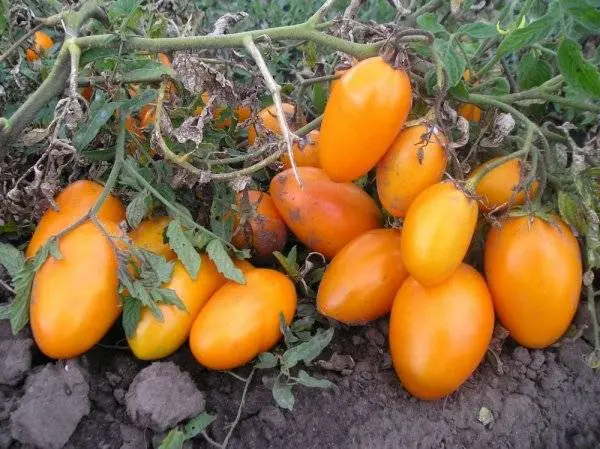
“Magic Harp F1”
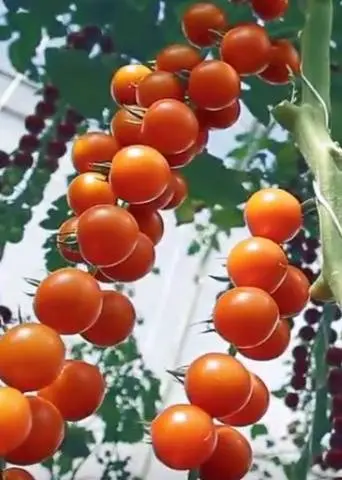
Mid-early indeterminate variety with a growing season of 95 days. In greenhouses, it is grown on an industrial scale. Requires closed space, bush formation and tying. It can grow both in the ground and when using a hydroponic system. Harvesting is done with whole brushes.
The bush is strong, well leafy. Yellow-orange tomato balls with a diameter of up to 3 cm and a weight of 21 grams are collected in dense brushes of 15 fruits each. The pulp of the fruit is dense, sweet in taste.
The advantages of the variety include its resistance to cracking and shedding, resistance to pathogens and stressful conditions. Recommended for whole-fruit preservation and fresh consumption.
The two best varieties of tomatoes for the Rostov region
Two of the most famous and recognized vegetable growers hybrids from Poisk.
“Premium F1”
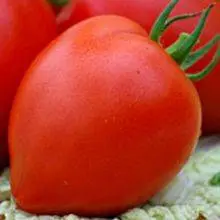
Determinate, not standard, early-ripening hybrid with a vegetation period of 90 days. The main purpose is open beds, but it also grows well in protected ground. Undemanding to the soil, but prefers sandy soil and loam.
The bush requires quite a lot of space, it is grown in two stems with a planting pattern of 0,5×0,7 m. Productivity up to 5 kg from one bush. Harvest bushes give together.
Medium-sized tomatoes, weighing up to 140 g. The flesh is red, dense, fleshy, with a pleasant taste. Tomatoes are round, longer than in diameter, with a “nose” characteristic of Rostov tomatoes.
The variety is well stored and can be transported over long distances, resistant to many diseases, except late blight. With high humidity, there is a high probability of phytophthora disease.
“Sovereign F1”
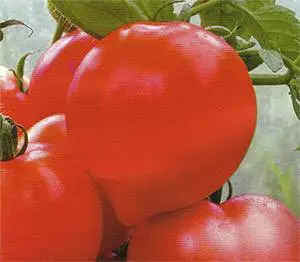
Salad tomato with a vegetation period of 100 days. The variety is determinant, up to 0,8 m high. Productivity is high. It grows well in greenhouses and open beds, but in greenhouses it gives up to 17 kg per m², while in open ground the yield is half as much.
Tomatoes are red, spherical, with a characteristic feature of the variety from the SSC “Rostovsky”: an elongated spout. Tomatoes are very hard, with many chambers inside. Weight on average 165 g. They are distinguished by evenness and very good keeping quality. After two months of storage, 90% of the fruits of the total mass stored in the storage are suitable for sale.
Disease resistant.
Conclusion
The Rostov Seed Center can offer many more varieties of tomatoes for any professional or amateur taste. Some of these varieties can be found by watching the video.
Given the characteristics of the soil in the Rostov region, it is better to choose varieties from the local seed center for growing tomatoes in this area.









